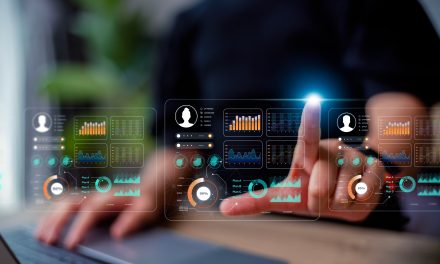Artificial Intelligence (AI) is a rapidly growing field that has the potential to revolutionize the way we live and work. AI refers to the ability of machines to perform tasks that would normally require human intelligence, such as learning, reasoning, and problem-solving. AI technologies are already being used in a wide range of applications, from virtual assistants like Siri and Alexa to self-driving cars and medical diagnosis tools.
Understanding AI: Artificial Intelligence involves the development of algorithms that can learn from data, identify patterns, and make predictions or decisions based on that data. Machine learning is a subset of AI that focuses on the development of algorithms that can learn from data without being explicitly programmed. Deep learning is a subset of machine learning that uses artificial neural networks to simulate the way the human brain works. These technologies are driving innovation in fields like healthcare, finance, and transportation.
As with any new technology, there are ethical considerations that must be taken into account when developing and using AI. These include issues like bias in algorithmic decision-making, privacy concerns, and the potential impact on jobs and the economy. Despite these challenges, the future of AI looks bright, with new applications and innovations emerging all the time.
Key Takeaways
- AI refers to the ability of machines to perform tasks that would normally require human intelligence, and is already being used in a wide range of applications.
- AI technologies like machine learning and deep learning are driving innovation in fields like healthcare, finance, and transportation.
- Ethical considerations like bias, privacy, and the impact on jobs and the economy must be taken into account when developing and using AI.
Understanding AI: Artificial Intelligence
Definition of AI
Artificial Intelligence (AI) is a broad term that refers to the ability of machines to perform tasks that would typically require human intelligence. AI has been defined in different ways, but one of the most common definitions is that AI is the ability of a machine to perform tasks that typically require human intelligence, such as visual perception, speech recognition, decision-making, and language translation. AI can be divided into two main categories: narrow or weak AI and general or strong AI. Narrow AI is designed to perform specific tasks, while general AI is designed to perform any intellectual task that a human can.
History of AI
The concept of AI has been around for centuries, but it wasn’t until the mid-20th century that the field of AI began to take shape. The term “artificial intelligence” was coined in 1956 by John McCarthy, Marvin Minsky, Nathaniel Rochester, and Claude Shannon during the Dartmouth Conference, which is considered the birthplace of AI. In the following decades, AI research made significant progress, with the development of machine learning, natural language processing, expert systems, and other AI technologies.
However, the field of AI experienced several setbacks, including the AI winter in the 1970s and 1980s, when funding for AI research declined due to the failure of early AI systems to live up to their hype. In recent years, AI has experienced a resurgence, with advances in deep learning, reinforcement learning, and other AI technologies, leading to breakthroughs in areas such as computer vision, natural language processing, and robotics.
In conclusion, AI is a rapidly evolving field that has the potential to transform many aspects of our lives, from healthcare and transportation to education and entertainment. While there are still many challenges to overcome, such as ethical and social implications, the future of AI looks promising.
AI Technologies
Artificial Intelligence (AI) is a rapidly growing field that is transforming many industries. AI technologies are designed to mimic human intelligence and are capable of performing tasks that would otherwise require human intervention. There are several AI technologies that are commonly used, including Machine Learning, Natural Language Processing, and Robotics.
Machine Learning
Machine Learning is a subset of AI that involves training algorithms to learn from data. It is a technique that enables computers to automatically improve their performance on a specific task without being explicitly programmed. Machine Learning algorithms can be supervised, unsupervised, or semi-supervised.
Supervised Machine Learning algorithms are trained on labeled data, where the desired output is already known. Unsupervised Machine Learning algorithms are trained on unlabeled data, where the desired output is not known. Semi-supervised Machine Learning algorithms are trained on a combination of labeled and unlabeled data.
Machine Learning is used in a wide range of applications, including image recognition, speech recognition, natural language processing, and predictive analytics.
Natural Language Processing
Natural Language Processing (NLP) is a subfield of AI that focuses on the interaction between computers and human language. It involves teaching computers to understand, interpret, and generate human language. NLP is used in a variety of applications, including chatbots, sentiment analysis, and language translation.
NLP algorithms use techniques such as text classification, entity recognition, and sentiment analysis to understand and interpret human language. These algorithms are trained on large datasets of text, which enables them to learn the nuances of human language.
Robotics
Robotics is a branch of AI that focuses on the design and development of robots. Robots are machines that are capable of performing tasks autonomously or with minimal human intervention. Robotics is used in a wide range of applications, including manufacturing, healthcare, and transportation.
Robots are designed to perform a variety of tasks, including assembly, inspection, and transportation. They can be programmed to perform repetitive tasks with high precision and accuracy. Robotics also involves the development of sensors, actuators, and control systems that enable robots to interact with the environment.
In conclusion, AI technologies are transforming many industries and are being used in a wide range of applications. Machine Learning, Natural Language Processing, and Robotics are three of the most commonly used AI technologies. These technologies are designed to mimic human intelligence and are capable of performing tasks that would otherwise require human intervention.
Applications of AI
Artificial Intelligence (AI) is a rapidly growing field that is transforming various industries. With its ability to analyze vast amounts of data and identify patterns, AI has become a valuable tool for many businesses and organizations. Here are some of the applications of AI in different sectors:
Healthcare
AI is revolutionizing the healthcare industry by providing faster and more accurate diagnoses, predicting diseases, and improving patient outcomes. AI-powered tools can analyze medical images, such as X-rays and MRIs, to detect abnormalities and assist doctors in making more accurate diagnoses. Additionally, AI can help with drug discovery, clinical trials, and personalized medicine.
Education
AI is transforming education by providing personalized learning experiences, automating administrative tasks, and offering intelligent tutoring systems. AI-powered tools can analyze student data and adapt teaching methods to meet individual needs. Additionally, AI can help with grading, course design, and identifying at-risk students who may need additional support.
Finance
AI is transforming the finance industry by providing faster and more accurate fraud detection, risk management, and trading decisions. AI-powered tools can analyze vast amounts of financial data to identify patterns and anomalies that may indicate fraudulent activity. Additionally, AI can help with credit scoring, loan underwriting, and investment management.
Transportation
AI is transforming the transportation industry by providing safer and more efficient transportation systems. AI-powered tools can analyze traffic data to optimize routes, reduce congestion, and improve safety. Additionally, AI can help with autonomous vehicles, predictive maintenance, and logistics optimization.
In conclusion, AI is transforming various industries by providing faster, more accurate, and more efficient solutions. As AI technology continues to advance, it is expected to have an even greater impact on our daily lives.
Ethical Considerations in AI
Artificial Intelligence (AI) is transforming the way we live and work. While AI has the potential to bring many benefits, it also raises ethical concerns. There are several ethical considerations that need to be addressed to ensure that AI is used in a responsible and ethical manner.
Bias in AI
One of the most significant ethical concerns in AI is bias. AI systems are only as good as the data they are trained on. If the data is biased, the AI system will be biased as well. This can lead to discrimination against certain groups of people.
To address this concern, it is essential to ensure that the data used to train AI systems is representative and unbiased. It is also essential to have diverse teams working on AI development to ensure that different perspectives are considered.
Privacy Concerns
Another ethical concern in AI is privacy. AI systems collect vast amounts of data about individuals. This data can include personal information such as health records, financial information, and location data. If this data falls into the wrong hands, it can be used for nefarious purposes.
To address this concern, it is essential to ensure that AI systems are designed with privacy in mind. This includes using encryption to protect data, limiting access to data, and ensuring that data is only used for the intended purpose.
In conclusion, ethical considerations are critical in the development and use of AI. Bias and privacy are just two of the many ethical concerns that need to be addressed. It is essential to ensure that AI is used in a responsible and ethical manner to maximize its potential benefits while minimizing its potential harms.
The Future of AI
Artificial Intelligence (AI) is rapidly changing the world we live in, and its impact is only going to grow in the future. With the increasing development of AI technology, it is essential to understand how it will shape the future of emerging markets and sustainability.
AI in Emerging Markets
AI has the potential to revolutionize emerging markets by providing access to information and resources that were previously unavailable. For example, AI-powered agriculture can help farmers in developing countries improve their crop yields, leading to increased food security and economic growth. AI can also be used to improve healthcare in emerging markets, providing access to healthcare services and personalized treatments.
However, there are also concerns about the potential negative impact of AI in emerging markets. For example, the use of AI in the workplace could lead to job displacement and exacerbate existing economic inequalities. It is essential to address these concerns and ensure that AI is used responsibly and ethically in emerging markets.
AI and Sustainability
AI can also play a crucial role in promoting sustainability and addressing environmental challenges. For example, AI-powered energy management systems can help reduce energy consumption and greenhouse gas emissions. AI can also be used to optimize supply chains and reduce waste, leading to more sustainable production and consumption patterns.
However, there are also concerns about the potential negative impact of AI on the environment. For example, the increased use of AI-powered devices could lead to increased energy consumption and e-waste. It is essential to address these concerns and ensure that AI is used in a way that promotes sustainability and reduces environmental impact.
In conclusion, AI has the potential to transform the world we live in, but it is essential to address the potential negative impacts and ensure that it is used responsibly and ethically. By understanding the potential of AI in emerging markets and sustainability, we can work towards a more equitable and sustainable future.
Frequently Asked Questions
What are the ethical concerns surrounding AI development?
As AI technology advances, ethical concerns continue to arise. One major concern is the potential for AI to be used for malicious purposes, such as cyber attacks or surveillance. Additionally, there is concern about the impact of AI on employment, as automation could lead to job loss for many workers. Other ethical concerns include bias in AI decision-making and the potential for AI to be used to create autonomous weapons.
How can AI be used to improve healthcare?
AI has the potential to revolutionize healthcare by improving patient outcomes and reducing costs. One example is the use of AI in medical imaging, which can help doctors detect and diagnose diseases more accurately and quickly. AI can also be used to analyze large amounts of patient data to identify patterns and predict future health issues. Additionally, AI chatbots can assist patients in scheduling appointments, answering questions, and providing basic medical advice.
What is the current state of AI technology?
The current state of AI technology is rapidly advancing. AI is being used in a variety of industries, including healthcare, finance, and transportation. Machine learning algorithms are becoming more sophisticated, allowing for more accurate predictions and decision-making. However, there is still much work to be done in developing AI that can truly mimic human intelligence and decision-making.
What are the potential job implications of AI?
The rise of AI technology has the potential to significantly impact the job market. While AI can create new job opportunities, such as those related to AI development and maintenance, it also has the potential to automate many jobs, leading to job loss for many workers. It is important for policymakers to consider the potential impact of AI on the job market and develop strategies to mitigate negative effects.
How can AI be used to improve education?
AI has the potential to improve education by providing personalized learning experiences for students. AI algorithms can analyze student data to identify areas where students need additional support and provide individualized learning plans. Additionally, AI chatbots can assist students in answering questions and providing feedback on assignments.
What are some examples of successful AI applications in industry?
There are many successful AI applications in industry, such as chatbots used for customer service, predictive maintenance in manufacturing, and fraud detection in finance. In healthcare, AI is being used for medical image analysis and drug development. In transportation, AI is being used for autonomous vehicles and traffic management. As AI technology continues to advance, we can expect to see even more successful AI applications in a variety of industries.



